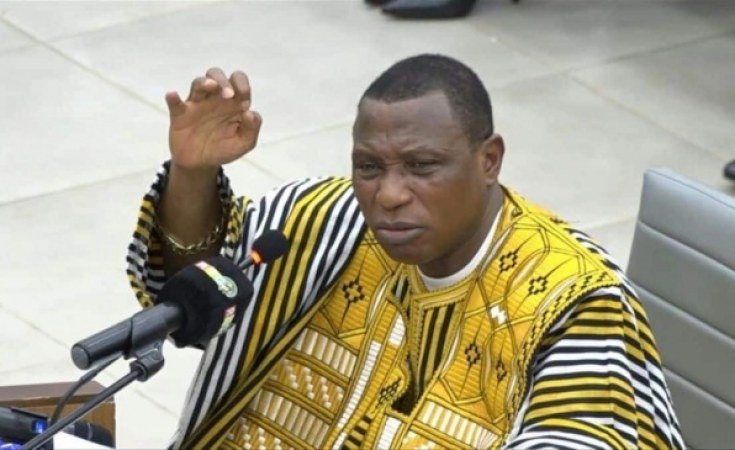The fight against impunity must continue in Guinea, the UN High Commissioner for Human Rights said on Thursday, welcoming the long-awaited verdict in the trial into the 2009 massacre at a stadium in the capital, Conakry.
On Wednesday, a court in Conakry found former President Moussa Dadis Camara and several other military leaders guilty of crimes against humanity. Four other men were acquitted.
Those convicted were also ordered to provide reparations to the victims and their families.
Right to justice
"After nearly 15 years, the victims, survivors and their families have the right to full justice and transparency," UN rights chief Volker Türk said.
"It is necessary to continue the path that Guinea has already started towards an end to impunity and ensuring that all those responsible for human rights violations are brought to justice," he added.
The High Commissioner also called for further strengthening of Guinea's judicial institutions and guaranteeing their independence as key to preventing such violations from recurring.
Killings, sexual violence and torture
At least 156 people were killed, many disappeared and at least 109 girls and women were subjected to sexual violence, including sexual mutilation and sexual slavery, when security and military forces attacked a peaceful political rally at the Conakry Stadium on 28 September 2009.
A number of victims were tortured to death and buried in mass graves.
In the aftermath, a UN Commission of Inquiry was mandated to establish the facts and circumstances, to identify those responsible and make recommendations.
With the support of the UN human rights office, OHCHR, the Commission concluded at the time that there was a "strong presumption that crimes against humanity were committed", with "reasonable grounds to suspect individual criminal responsibility".
"Those who have lost loved ones and those who have been subjected to torture and sexual violence have the right to comprehensive psychosocial as well as financial support," Mr. Türk said.
The High Commissioner noted that it was also crucial for the Guinean Government to determine the whereabouts of all those who went missing and ensure those responsible for enforced disappearances and associated violations are held to account.
He also stressed the importance of guaranteeing the defendants' right to appeal.
Powerful message against impunity
Separately, the senior UN official working to end rape in wartime also welcomed the outcome of the trial.
Pramila Patten, Special Representative of the UN Secretary-General on sexual violence in conflict, said the verdict sends a powerful message that impunity will not be tolerated and reaffirms commitment to upholding the rights of survivors.
"The delivery of the first-instance verdict is a significant milestone in the pursuit of justice for survivors of sexual violence and accountability for perpetrators. Sexual violence crimes have always been at the centre of this accountability process, both in investigations and trial," she added.
The Special Representative's Office has supported this process since 2011, when the Guinean Government and the UN signed a joint communiqué on the fight against impunity for the 28 September 2009 events, including sexual violence.
Through the Team of Experts on the rule of law and sexual violence in conflict, the Office has provided technical assistance to the investigating judges throughout the investigation phase and in the establishment of a steering committee for the organization of the trial.
Ms. Patten commended the crucial efforts by Guinean authorities in organising this nationally owned process.
She also praised the proactive role of the national judicial system and the magistrates' professionalism in the conduct of a fair trial.


